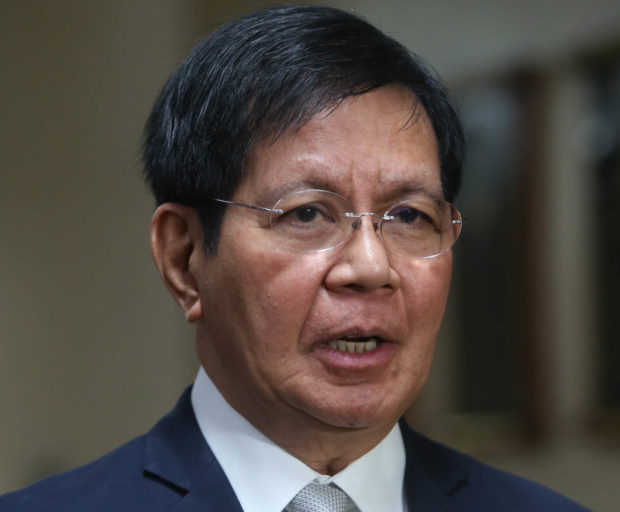
Sen. Panfilo Lacson (File photo from the Philippine Daily Inquirer)
MANILA, Philippines — Sen. Panfilo “Ping” Lacson on Sunday demanded that Maj. Gen. Rodel Sermonia, the community relations chief of the Philippine National Police, explain why he asked police officials to gather the personal data of people in several parts of the country.
Lacson, who was PNP chief from 1999 to 2001, said Sermonia should also explain what the PNP’s so-called “Intensified Cleanliness Policy” had to do with the individual email addresses, mobile phone numbers and other data of 30 percent of residents of barangays in Luzon, Visayas and Mindanao.
“I will ask him to explain what does Intensified Cleanliness Policy of the PNP mean? What will they clean?” Lacson said in Filipino in a radio interview.
Lacson, chair of the Senate defense and security committee, said the military itself had claimed that barangays had already been cleared of communist rebels under the National Task Force to End Local Communist Armed Conflict (NTF-Elcac).
“What else does the PNP have to clean up?” Lacson asked, on the same day Gen. Guillermo Eleazar, chief of the PNP, said the PNP was ready to explain how it spent its share of more than P700 million from NTF-Elcac funds.
Last month, the Commission on Audit (COA) revealed that the PNP had spent only P86.568 million of its P722.95-million share in NTF-Elcac funds, or only about 12 percent of the budget it received from the budget department.
No surrenderer in Davao City
Lacson said he was also very curious about the PNP Intensified Cleanliness Policy because it was the first time he heard of it.
“What is the PNP’s Intensified Cleanliness Policy connection with the NTF-Elcac?” asked Lacson, who defended the NTF-Elcac budget allocation from incredulous senators.
“You know, it’s easy to coin terms [but] we already have so many acronyms. We keep on asking what does it mean?” the senator said, adding that police officials themselves informed him of the unexplained PNP policy.
“Not all [PNP officials] are happy with it,” the senator said. “There are those in the PNP who have a conscience. They are asked to do something, which their conscience could not accept. They precisely believe that all of this leads to or would be used in the upcoming elections.”
“I was told they wanted to talk to me. I said, fine,” Lacson said, adding that he would withdraw his support for the NTF-Elcac whose funds were clearly being used for partisan political purposes.
Lacson has announced his intent to run for president in 2022 and has assumed leadership of the Reporma Party.
The president of Reporma, former Speaker Pantaleon Alvarez, had told him that Davao City received P1.5 billion from NTF-Elcac funds although it had no surrenderers.
Alvarez’s home province, Davao del Norte, on the other hand, did not receive any NTF-Elcac funds although it had more than 2,000 New People’s Army surrenderers.